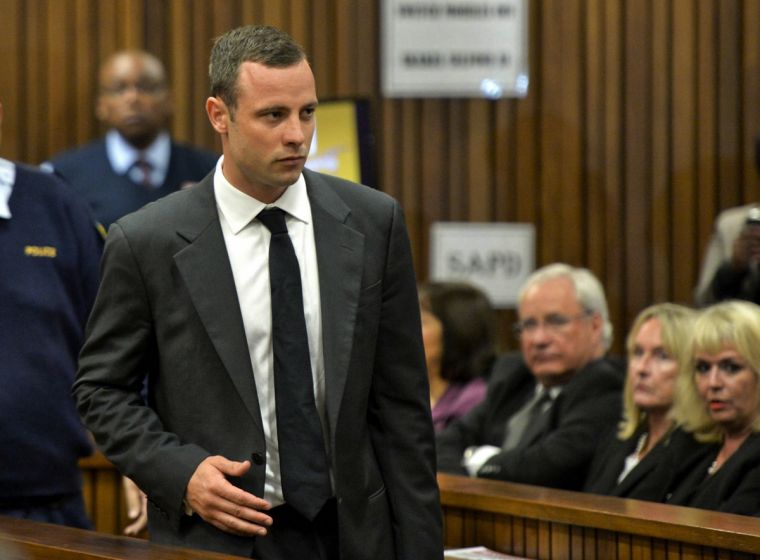June Steenkamp's readiness to forgive offers a challenge to Christians everywhere

The trial of Oscar Pistorius is dominating the headlines and brought with it much contention.
The South African athlete, a world-class Paralympian blade runner and the first ever double-amputee to participate in the Olympic Games, stands charged with the murder of his girlfriend Reeva Steenkamp - a world away from the glory of London 2012 less than a year.
Pistorius claims he shot her by accident, mistaking her for an intruder. The prosecution say he is a hotheaded killer who murdered his girlfriend in a moment of anger.
Amid all the controversy surrounding the trial, the victim's mother, June Steenkamp, has stunned the world by saying she has forgiven Reeva's killer.
In an interview with ITV, June said: "I'm not a person who hates another person. One has to forgive, otherwise I will sit with all that anger...One has to forgive, but we'll never forget."
She was echoing her words on the Today show, in an earlier interview during which she contended that Pistorius "made a mistake – an enormous mistake – and I've lost the most precious thing in my life – my beautiful daughter. But I can still forgive. I can forgive."
Her words have shocked much of the world as more of the heartbreaking case comes to light through the trial. Pictures capturing the moment that June broke down during the trial have been widely circulated, as she was forced to face her daughter's harrowing last moments once again.
So how has she managed to forgive the man who killed her daughter?
It certainly presents a challenge to those of faith, as we so often profess a willingness to forgive – it's even written into the Lord's Prayer – but could we truly stand before the murderer of a cherished family member and offer real forgiveness?
Reconciliation can sometimes be one of the most difficult parts of the grief process, but June contends that it is integral to full healing. "I don't want it to burn me up, I've got to let go of that anger," she says.
Some might say it's unfair of June to offer forgiveness, and they're completely right. It's undeserved and it's unjust. But it's also incredible, and it is helpful to look at what 'I forgive you' actually means to understand Jesus' call to be reconciled to one another.
I once listened to a talk in which I was stopped in my tracks by the following statement: "Forgiveness doesn't mean 'It's okay'."
I was floored. Surely 'I forgive you' means 'That's okay. No harm done, just forget it'?
The speaker went on to explain that when someone has caused us pain, we are faced with a choice. We can either choose to let the pain fester and build up to cause more resentment, grief and bitterness, or we can choose to take that pain upon ourselves and look beyond it, to look at the other person and see them as God sees them, without letting the anger cloud that vision.
It doesn't mean that we forget the pain caused, but it does mean we choose not to hold it against the person who has wronged us.
When Jesus died on the cross, he took on our sin and our shame. He physically bore the brunt of our wrongdoings so we could be reconciled to the Father. His legs were broken, he had nails driven into his wrists, he wore a crown of thorns and suffered extreme torture before a slow and humiliating death on a cross so that we could be forgiven.
Forgiveness is painful - it hurts.
It's also unfair. Grace is unjust – we don't deserve to be intimate with God. We don't have a right to draw near to him. And yet, Jesus says in the Gospel of Mark "I no longer call you servant, I call you friend".
When Jesus extends grace to us, we find freedom. And when we offer it to other people, again freedom comes. We are released from bitterness and from bearing a grudge. We are released to be reconciled and to find grace for ourselves. We are released to find life.
In forgiving Pistorius, June is saying she will not let her anger consume her, and she will not keep it from stopping the process of reconciliation. She is choosing to find life in the midst of such intense grief and pain.
There's a challenge in that for all of us - to look at our own circumstances and the places where faith meets our real lives, and consider where we need to offer forgiveness. We may never be faced with such a traumatic and heartbreaking situation as June, but we also may experience a situation where the wrong done to us could burn us up if we let it. Who are the people to whom we need to extend grace in our own lives?











